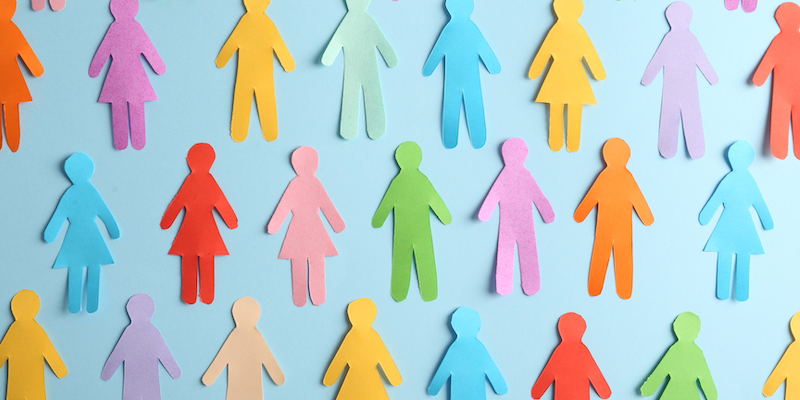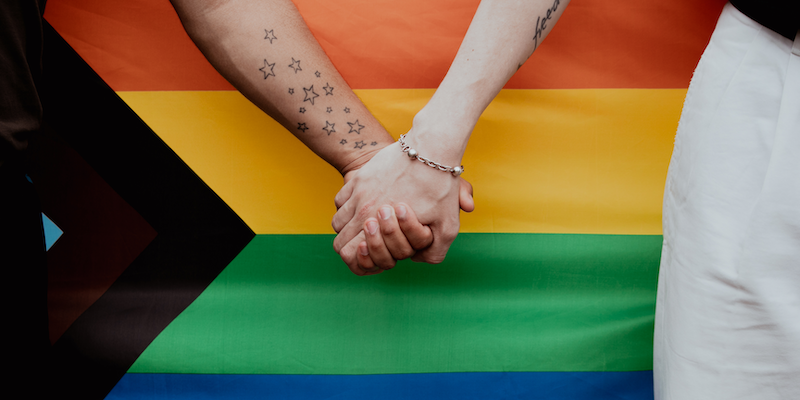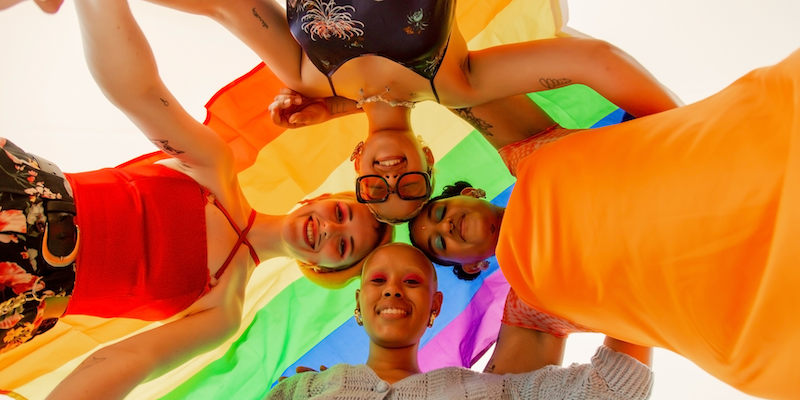Love is Love: The Importance of Including Diversity in Your Valentine’s Day Campaign
Valentine’s Day has changed over time, as society has changed, and so have the expectations from marketing campaigns based on this special day. The world is more openly diverse and it is now important for brands to show inclusivity in their Valentine’s Day marketing campaigns. Beyond the traditional idea of romance, which has shown us straight couples in marketing campaigns, are a wide range of diverse love stories waiting to be told and represented in the media. Let’s unpack why inclusive campaigns matter and how they can redefine and elaborate on the narrative of love.
The Power of Inclusivity

Inclusive campaigns about Valentine’s Day do not only highlight and acknowledge different types of relationships that are not usually shown in mainstream media, they also engage with and represent these relationships. For example, consider a Valentine’s Day marketing campaign that showcases a same-sex couple. This campaign not only shows us how diverse our society is, but also shows same-sex couples that they are recognised and accepted. It’s a celebration of love in all its forms, which resonates with a wide audience and, in turn, fosters a positive brand image.
By using inclusivity in marketing campaigns, brands will reach a wider audience and build on brand loyalty with consumers they have not made a connection within the past.
Breaking Stereotypes
Stereotypes are dangerous and have been proven to incite hate and violence. For example, consider a marketing campaign that shows a non-traditional family celebrating Valentine’s Day. Marketing campaigns like this one would challenge toxic societal norms and stimulate conversations and learning, which breaks down these stereotypes.
Authentic Representation

When being inclusive and showing diversity, brands need to be careful to not “rainbow wash” their campaigns or be inauthentic. Rainbow washing is when brands mislead their consumers by pretending to be an LGBTQ+ ally. For example, these brands would change their social media profile picture during pride month to use rainbow colours, which is the LGBTQ+ flag. Brands have been known to do this not because they are an ally, but because they want to attract the LGBTQ+ market.
Consumers, whether straight or not, demand authentic marketing campaigns that showcase real people. To avoid rainbow washing, brands should avoid using clichés in their campaigns. Being authentic not only shows that the brand is a true ally, but also builds trust with the brand’s customer base.
Case Study: Woolworths 2019 Valentine’s Day Campaign
In 2019, Woolworths pulled their nationwide Valentine’s Day campaign after mass online backlash. The campaign had the slogan “Love always wins” but was called out for gender stereotyping.
In the female version, the ad reads, “She orders a salad then steals your chips; she takes forever to get ready; she snuggles you to the edge of your bed; she uses your razor to shave her legs; she makes you her Instagram husband; she says she’s ‘fine’ when you know she’s not,”. In the male version, the ad reads, “He touches your hair; he doesn’t know the title to ‘your song’; he makes plans without telling you; he uses the wrong emoji’s in text messages and believes he’s entitled to the remote control; he thinks he knows better than Siri.”
Woolworths had apologised for causing offence and said, “The intention behind our Valentine’s Day campaign was a light-hearted reference to the clichéd idiosyncrasies within so many relationships, rather than any gender stereotyping”. But an additional issue that many people had with this campaign was that it was geared towards heterosexual couples, with no versions of the campaigns geared towards same-sex relationships.
Equipping Marketers for Inclusive Campaigns
Embarking on a career in the marketing realm can be daunting, given the concerns many professionals harbour about unintentionally causing offense, lacking authenticity, or facing potential repercussions, including cancellations, due to errors in their marketing endeavours. To sidestep such pitfalls and orchestrate triumphant, all-encompassing marketing campaigns for Valentine’s Day and beyond, contemplate enrolling in a marketing programme or pursuing a degree provided by the esteemed IMM Graduate School.
The IMM Graduate School has earned acclaim as an educational institution that extends a variety of marketing courses designed to furnish budding marketers with the essential tools and skills required for crafting impactful and inclusive marketing campaigns. The marketing qualifications at the IMM Graduate School provide comprehensive education on an array of subjects, empowering students to comprehend the varied needs of consumers they will encounter. Furthermore, these programmes instil knowledge on formulating strategies that strike a chord across diverse demographics. To delve deeper into the details of their marketing courses, click on the link provided here.

In conclusion
Embracing diversity in Valentine’s Day marketing campaigns goes beyond fulfilling a social responsibility by representing different types of romantic relationships. It’s about creating meaningful connections, challenging stereotypes, and building a more inclusive and accepting society. As brands continue to learn and adapt to diversity, so should their narratives of love around Valentine’s Day, ensuring that everyone sees themselves reflected in the stories told on this day dedicated to love – because love is love, in all its beautiful forms.
